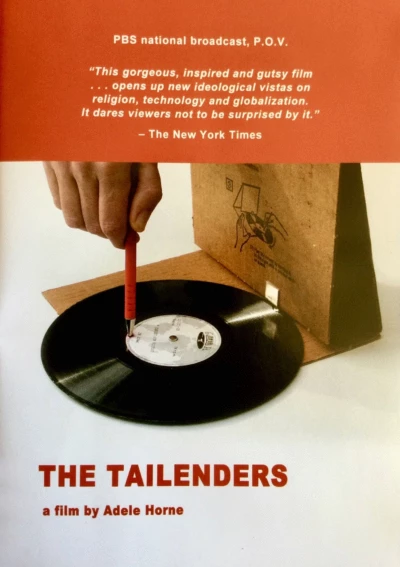The Tailenders (2006)
July 25, 2006Release Date
Plot.
Where to Watch.
Cast & Crew.
Details.
Wiki.
The Tailenders is a 2005 documentary directed, produced and narrated by Adele Horne, an American independent filmmaker based out of Los Angeles. It is in limited release and has been screened in the U.S., Mexico and Scotland. According to a P.O.V. press release, The Tailenders was broadcast nationally in the US on PBS on Tuesday, July 25, 2006.
The film follows Gospel Recordings, an evangelical Christian missionary group founded by Joy Ridderhof in California in 1939 to make audio recordings of Bible stories in every language on Earth. The group is part of the umbrella network GRN - Global Recordings Network which has sister offices in over 30 countries. The film claims there are over 8,000 languages and dialects in the world and, as of the making of the film, Global Recordings Network has recorded Bible stories in 5,485 of them. It is mentioned in the film that their archive houses more spoken languages in one place than any other single area in the world. The significance of this lies in the notion that the Bible is not only the most published book around the world, passages from it are also translated into the most spoken languages as well. Many of the languages utilized by Gospel Recordings do not have written counterparts, and even if they did, most who spoke the languages would not be able to read it anyway. A benefit of this group's work is the growing set of unspoken languages that are catalogued over the years, which act as a strong counterpart to historical records of various cultures. "The Tailenders" claim that half of all languages occur in eight countries.
Global Recordings Network, founded in Los Angeles in 1939, specifically targets indigenous people in remote areas of the world. In the years of 2002 and 2003 the organization prearranged trips to The Solomon Islands, Mexico, and India. Three countries termed the "tailenders" since they were the last group of people to be reached by missionaries transmitting the message of God, unchanged. In the three countries mentioned earlier, there are a total of 769 different languages and dialects spoken, 74 in The Solomon Islands, 295 in Mexico, and 400 in India.
The film attempts to explore the connection between missionary activity and global capitalism by using low-tech audio devices to speak to communities that face economic crisis. The missionaries targeted these communities that were in crisis because they found that displaced and desperate people were more receptive to evangelical recordings. Also because these people were more interested in the audio recordings because they were more comfortable with listening to their native language. It seems to provide an interesting view on mass-evangelization as the filmmaker shows the viewer that by placing a concentrated emphasis on these native people and using a recording of their own language as a way of connection to Christianity; to make them feel comfortable in learning a new way of thinking about the world.



